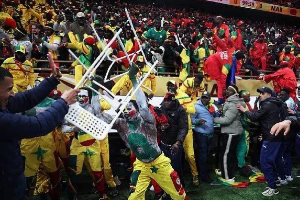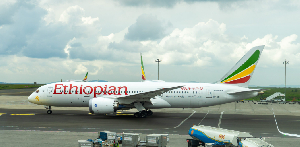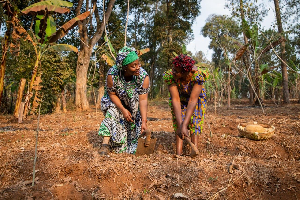Accra, July 9, GNA- The Trades Union Congress (TUC) on Wednesday threatened to form a national coalition of willing individuals and groups, to resist government's decision to sell its 46.81 per cent shares in the Ghana Commercial Bank (GCB).
At a press conference to add its voice to the growing public dissent against the sale of government shares, Mr Kwasi Adu-Amankwa, Secretary-General of the TUC, said the coalition would adopt all available means to ensure that GCB was retained as a strategic national asset.
"We wish to emphasise that TUC is not against the modernisation of GCB per se. We believe that the secure future of GCB can be entrusted to competent Ghanaian managers, who have track records in managing such institutions", he said.
This is in sharp contrast to the position of Mr Yaw Osafo-Maafo, Minister of Finance, who said on Tuesday that the Executive would not bow to threats or emotional outbursts from the public on the sale of its shareholdings in the Bank.
Government would be guided by prudent technical and financial analysis to safeguard the interest of the nation, the Minister said at a press conference in reaction to agitation against the sale.
Mr Adu-Amankwa said an outright sale of the Bank would amount to mortgaging the financial system to the detriment of the development needs of the country, adding that the strategic reasons for which the bank was set up were still valid as they were some 50 years ago.
"GCB has successfully played this role of bringing banking services to the door steps of communities that would otherwise have been without a bank while at the same time mopping up capital for investment."
Mr Adu-Amankwa accused government of bowing to pressures of the International Monetary Fund (IMF) and the World Bank to privatise GCB. This is because the two Breton Wood Institutions have expressed dissatisfaction about the continuous support of the Bank to the Tema Oil Refinery (TOR) to the tune of over two trillion cedis.
"The IMF and the World Bank describe this as a source of soft financing, which has adversely affected the efficient operations of TOR by avoiding or delaying reforms of its operations and postponing the introduction of a rational pricing regime for petroleum in Ghana."
Mr Adu-Amankwa suggested a complete overhaul of the organizational structure of the country's largest bank with 135 branches to conform to modern trends by strengthening such areas like information technology, bank office operations and human resource management.
Business News of Wednesday, 9 July 2003
Source: GNA












